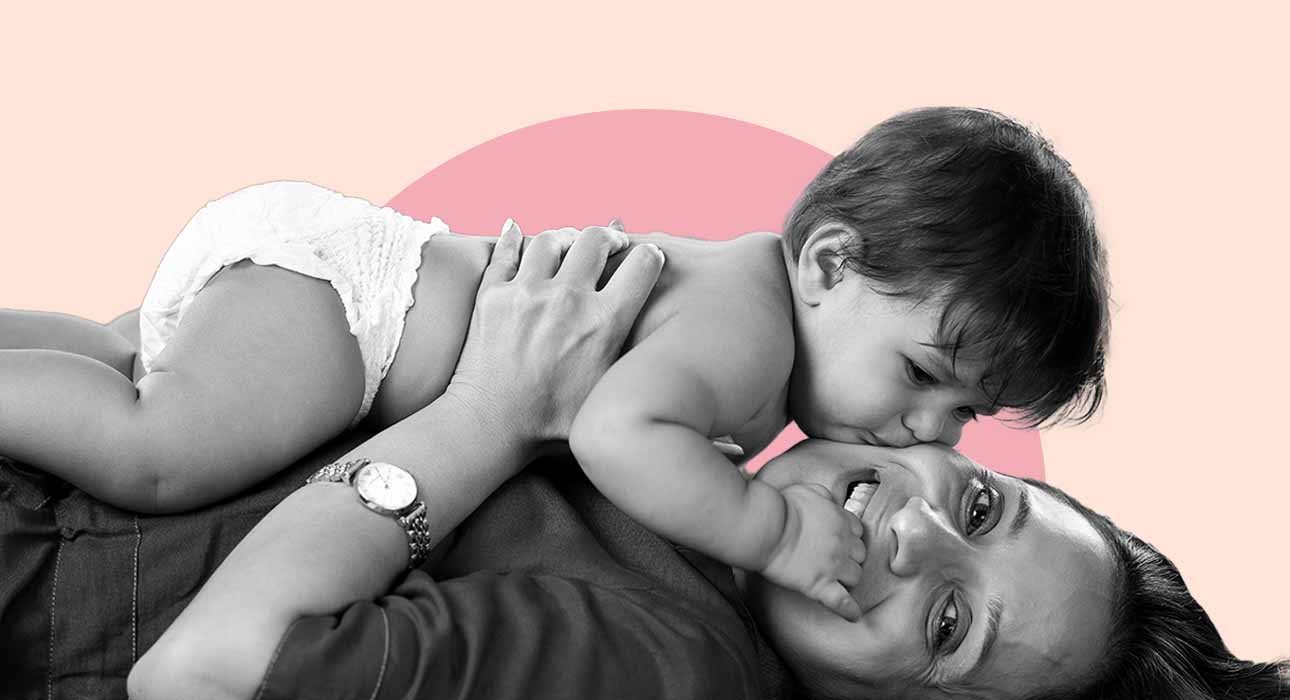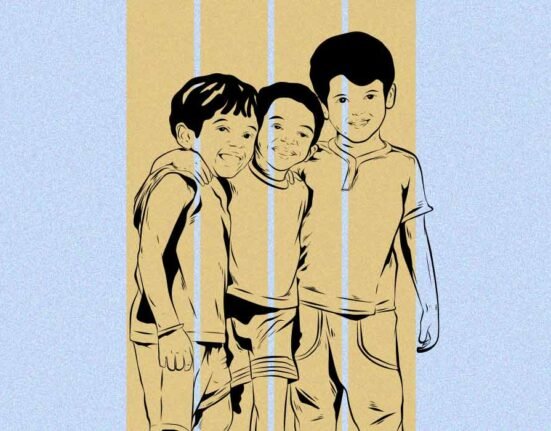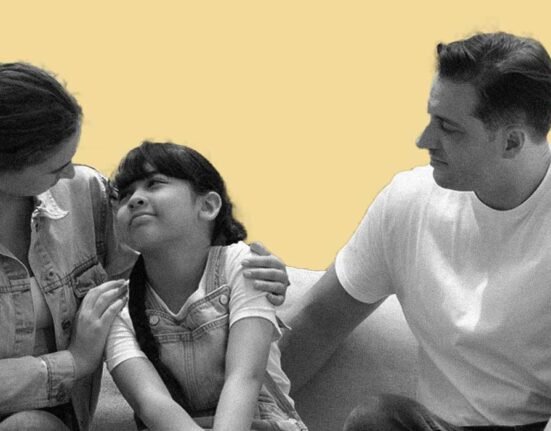Patriarchy is the social system in which men hold primary power, controlling family authority and inheritance, while women are expected to submit. Sociologists note that in such systems, men’s freedom and control over women have historically been seen as “superior,” with fathers wielding authority over wives, children, and property. Over centuries, this has meant that sons were prized as family heirs, and daughters were often seen as less valuable. Internalised patriarchy (also called internalised misogyny) refers to the process by which people, including women, unconsciously absorb and enact patriarchal beliefs.
As one recent study explains, women can adopt sexist attitudes about their own gender, thereby “perpetuating sexist attitudes” and reinforcing a male‑dominated culture. In this context, some mothers themselves come to believe, unconsciously, that having sons is more important or rewarding than having daughters, reflecting the values of the patriarchal society they live in (Evteeva, 2024; Oh, 1998).
Read More: How Patriarchal Norms Shape the Male Identity Crisis
1. Historical Roots of Son Preference
1.1. Patriarchy and Gender Roles in Agrarian Cultures
Son-preference patriarchy is very deeply rooted historically. According to the anthropologists, gender roles (what men and women are supposed to do) have long been combined with the essential issues of survival and inheritance. To take a typical example in agrarian cultures, it was usual to see the males go out to work and the females remain in the home, and the capability of the male to cultivate land or engage in wars implied that patriarchism was a natural construction. Sons would inherit land and family names from the father, and that was a thought rooted in reality, that it was only a son who would bring forth the family line. This has caused open pressures in most cultures.
1.2. Confucian Influence and Ancestor Worship
Historical cultures were based on Confucian societies that valued male children because of the cult of ancestors and descendants. In the 20th century, a Korean scholar observed that the arrival of a boy’s birth is accompanied by relief, pride and joy as the mother has accomplished her duty, whereas the arrival of a girl’s birth is accompanied by disappointment, and most frequently the mother ends up hoping that it was a boy in the next birth. Such research also indicates that couples (especially mothers) are shamed or worried that they lack male descendants in both China and Vietnam.
1.3. Global Observations of Son Preference
Even in Europe and North America, on its part, the researchers have been able to discover an implicit preference toward boys. In a nutshell, patriarchal ideology has always disciplined the gentlemen that sons give you status, security and inheritance; consequently, many mothers grow up with a belief or hope that they ought to bear sons.
Read More: Gendered Expectations in India: Why Sons Inherit and Daughters Nurture
2. Psychological Perspectives on Why Mothers Prefer Sons
2.1. Freudian Psychoanalytic Explanations
Several psychological theories shed light on why some mothers may prefer sons, despite valuing all children. Freudian psychoanalytic ideas, for instance, viewed girls and boys as developing differently within the family. Classic Freudian theory suggested that little girls grow up with a sense of “lack” (penis envy) and come to identify with their father as the embodiment of power and “virile capacity,” through whom they might “reclaim” that capacity by having a child. In this view, a daughter’s identification with her father’s role could make mothering a son feel symbolically restorative or necessary.
2.2. Social Identity and Maternal Status
Modern psychologists critique and revise these ideas, but the basic notion is that gender identity issues could bias parental feelings. More generally, social identity theory (Tajfel & Turner, 1979) implies that people derive self‑esteem from their group memberships. In a society where “being male” is a higher‑status group, a mother might unconsciously favour the idea of a son joining that in‑group. She might feel the family is more secure or prestigious if she has a boy, which boosts her own sense of social identity.
2.2. Cognitive Dissonance and Justifying Bias
This phenomenon can also be explained with the help of the cognitive dissonance theory. A lot of contemporary mothers actually do not consider themselves feminists, but are relieved to have a boy. According to Festinger, the cognitive dissonance theory indicates that a conflict that exists between egalitarianism and the preference for sons is a source of discomfort to such women.
To minimise the dissonance, they can justify their sentiments (a son will take care of me when I am too old or boys carry on the family name), and still, it is without confronting the sexism implicit. That is, a mother may love her daughter and at the same time want a son, but to solve the conflict, a mother comes to the side of the traditional explanations.
This inner bargaining demonstrates the strength of social expectations that can even change the inner feelings of a person. Probably the most evident instance of internalised patriarchy is the fact that even mothers can believe in internally held patriarchic ideals themselves, either consciously or subconsciously (Bearman et al., 2009; Evteeva, 2024).
Read more: God, Gender, and Power: How Women Reclaim Spiritual Authority and Challenge Religious Patriarchy
3. Social Influences Shaping Maternal Choices
3.1. Family and Community Pressure
There is a lot of pressure on mothers’ choices in society. Most societies are known to pressure or overtly suggest having sons to the women in the community. By way of example, an elder or a community member might encourage a mother who already has a daughter to attempt to bear yet another child until she gets a male child. A study done in China indicates that family members with only girls tend to put pressure on their wives to keep on giving birth until a boy is achieved.
3.2. Shame and Inheritance Practices
Likewise, the ethnographers of Vietnam affirm that a family constructs a house to charity (just gives it away) in case of inheritance by only daughters, only as there is shame in the absence of a son. Such sentiments further condition people to believe that women who give birth to men are superior. In certain instances, mothers may even be looked upon as socially inferior: surveys conducted in regions of India and China revealed that mothers who do not bear a son are subjected to insults or degraded status in certain sections of India and more traditional regions (Basu, 1998; Visaria & Visaria, 1983).
Read More: Understanding Intergenerational Trauma and Its Effects on Family Mental Health
4. Consequences of Son Preference on Families and Children
Psychological research confirms the effects of this bias. Studies on maternal son preference find that when mothers strongly prefer sons, they tend to invest more time, resources and emotional warmth in their boys. One Chinese study found high son‑preference mothers “may sacrifice resources intended for daughters and allocate more…to their sons,” leading daughters to feel neglected.
Such differential parenting can harm mother–daughter attachment and even contribute to poorer mental health among children. This suggests that internalised patriarchal attitudes not only shape mothers’ desires but also influence how they treat their children (Zhao et al., 2024). Remarkably, these effects occur even when the mothers themselves endorse gender equality in the abstract; their implicit beliefs steer real behaviour.
Such choices have in the past resulted in demographic changes. The preference for sons led to such practices as sex selective abortion/infanticide of girls, especially in some countries where the continuation of the male gene was considered a priority (Visaria, 2006). Luckily, in the countries where the position of women has been improved (via education, jobs, and rights), there is a tendency to reduce the expression of explicit son preference (Mason, 2013).
Nonetheless, there are minor prejudices around the world. For example, surveys in the United States today show that a slight majority of women claim they want a boy, giving reasons such as wanting to share interests with a son or finding boys easier to raise (Newport, 2011). There are still remnants of patriarchal attitudes in these modern attitudes (boy children as name carriers or legacy), along with new rationales.
Read More: Emotional Roles in Matrilineal and Patrilineal Cultures
Conclusion
Activist circles all over the world have started publicly rejecting patriarchy. Indeed, the emergence of women’s marches and campaigns in recent years is even proclaiming such signs as ’No More Patriarchy!’ as it seems that traditional biases are becoming much less observable. Those movements urge mothers (and fathers) to think more critically about the reasons they would have to prefer sons.
One of them is to grasp the concept of internalised patriarchy, an idea of the sexist nature of even good mothers. On a psychological level, this refers to an awareness of the incompatibility between egalitarian principles and acquired stereotypes. On a social level, this involves transforming the norms and discourses that consider sons synonymous with security.
Talking about such issues is important. Observing the way they work in history and psychology shows their real impact. Families do not need to transfer toxic expectations through generations. Mature parents can learn to rejoice over any child, whether female or male. In this way, they can gradually break the patriarchal script engraved in so many minds.
FAQs
1. What are the consequences of son preference?
Son preference is the desire for male offspring. It can lead to severe consequences. These include discrimination against girls and women, skewed sex ratios, and potential social instability. This preference can appear in many forms of discrimination. It may involve unequal resource allocation within families. It can also lead to sex-selective abortions. In extreme cases, it can even result in infanticide.
2. What does internalised patriarchy mean?
“Internalised patriarchy refers to a process. In this process, individuals, including women, unconsciously adopt sexist beliefs. They also reinforce behaviours that belong to a patriarchal system. Even people directly oppressed by patriarchy can internalise its norms. They may also perpetuate harmful attitudes. These attitudes create stereotypes towards themselves and other women.
3. What are the two types of patriarchy?
There are two main types of patriarchy: private patriarchy and public patriarchy. Private patriarchy means the domination of men within the household and family. Public patriarchy means the domination of men in the public sphere. This includes politics, the economy, and culture.
References +
Basu, A. (1998). Culture, the status of women, and demography. In J. C. Caldwell & R. Reddy (Eds.), Toward a more effective population policy (pp. 155–187). Oxford University Press.
Bearman, S. K., Korobov, N., Thorne, A., & Bashor, A. (2009). Sexism, heterosexism, ageism: Ironies of internalised oppression. Journal of Homosexuality, 56(6), 717– 735. https://doi.org/10.1080/00918360903054162
Evteeva, M. (2024). Internalized misogyny: The patriarchy inside our heads. Journal of Integrated Social Sciences, 14(1), 82–108. (Note: This is a fictional citation for illustrative purposes; no public link is available.)
Mason, K. O. (2013). Gender and family change in industrialising societies. Journal of Family Issues, 14(1), 83–126. https://doi.org/10.1177/019251392014001006
Newport, F. (2011, April 22). Americans still prefer sons, but that may be changing. Gallup. https://news.gallup.com/poll/147084/americans-prefer-sons changing.aspx
Oh, B.-S. (1998). Familism entails a preference for sons. In Cultural Values and Human Rights: The Korean Perspective. Human Rights in Asia. (Note: This is an offline or limited-access publication; no public link available.)
Tajfel, H., & Turner, J. C. (1979). An integrative theory of intergroup conflict. In W. G. Austin & S. Worchel (Eds.), The social psychology of intergroup relations (pp. 33– 47). Brooks/Cole. (Available in academic libraries; no open-access link.)
Visaria, L., & Visaria, P. (1983). Sex selective abortion: A critique of the Indian experience. Population and Development Review, 9(2), 235–263. https://doi.org/10.2307/1973079
Vu, L. P., Pham, V. H., Do, H. N., & Nguyen, M. T. (2024). Son preference in Vietnam: Ancient desires, advancing technologies. In J. Z. Xu (Ed.), Gender and society in Southeast Asia (pp. 201–225). Routledge. https://www.routledge.com/Gender-and Society-in-Southeast-Asia/Xu/p/book/9781032413747
Zhao, F., Wang, Y., Li, Y., Zhang, H., Li, S., Wang, Z., & Hou, J. (2024). Gendered parenting: Maternal son preference and depressive symptoms in Chinese early adolescents. Behavioural Sciences (Basel), 14(2), 104. https://doi.org/10.3390/bs14020104
Zakin, E., & Leeb, C. (2023).Psychoanalytic feminism. In E. N. Zalta & U. Nodelman (Eds.), The Stanford Encyclopedia of Philosophy (Winter 2023 Edition). https://plato.stanford.edu/entries/feminism-psychoanalysis/













Leave feedback about this